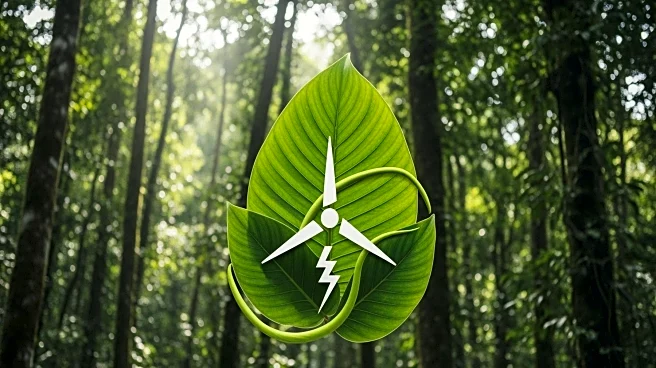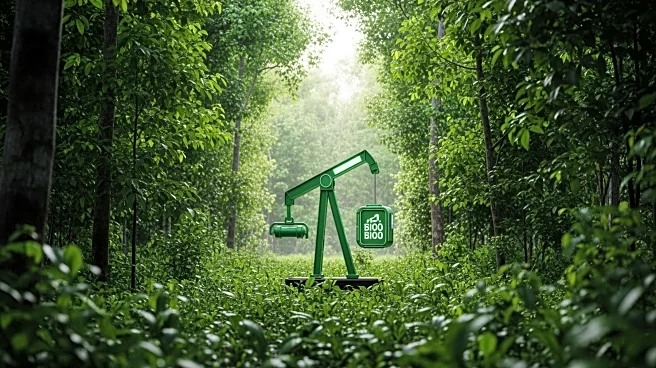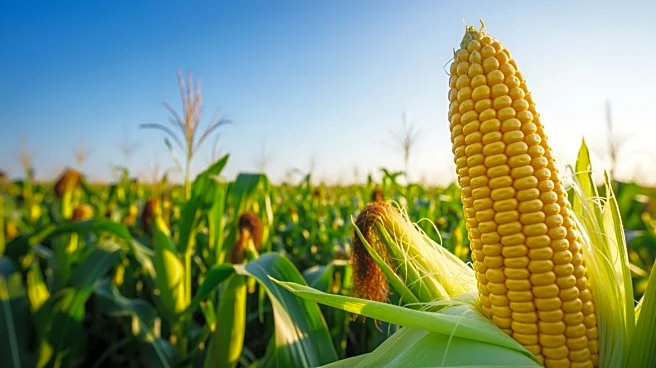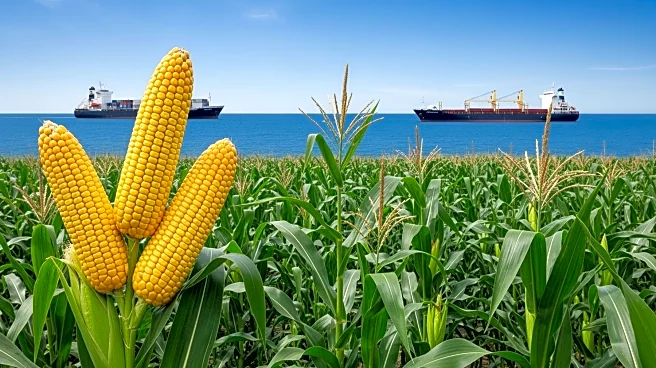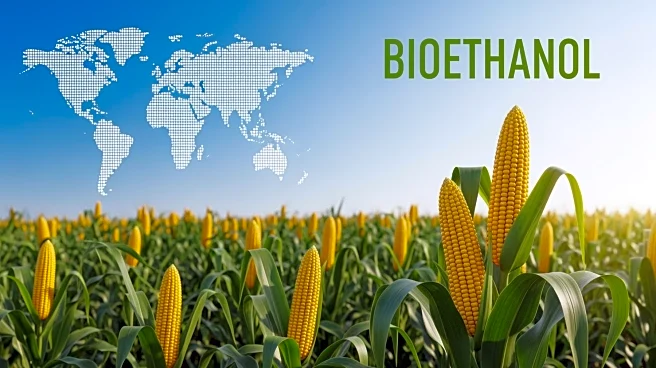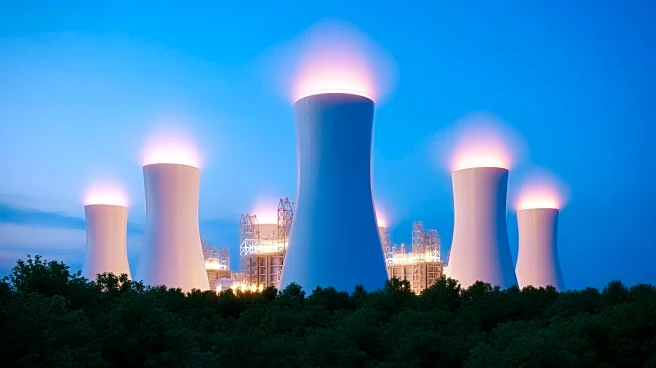What's Happening?
The upcoming COP30 climate summit in Belém, Brazil, is set to focus on sustainable fuels, climate justice, and the role of tourism in climate action. Brazil, in collaboration with India, Italy, and Japan,
has announced an ambitious pledge to quadruple global sustainable fuel use by 2035. This initiative aims to significantly reduce the transport sector's reliance on fossil fuels. However, the pledge has raised concerns due to Brazil's recent policy changes, including lifting a moratorium on soybean expansion, which previously helped slow Amazon deforestation. Critics argue that without strict safeguards, the expansion of biofuels could lead to increased deforestation, undermining the environmental goals of the summit.
Why It's Important?
The pledge to increase sustainable fuel use is crucial in the global effort to mitigate climate change by reducing fossil fuel dependency. However, the potential environmental impact of expanding biofuels, particularly in regions like the Amazon, poses significant risks. Deforestation for biofuel crops could lead to biodiversity loss, increased carbon emissions, and disruption of local ecosystems. The situation highlights the delicate balance between advancing renewable energy and protecting natural resources. The outcome of Brazil's pledge could influence global climate policies and set a precedent for how countries approach sustainable energy transitions.
What's Next?
As the host of COP30, Brazil has the opportunity to lead the global conversation on sustainable energy and climate justice. The summit will likely address the need for clear guidelines and safeguards to prevent negative environmental impacts from biofuel expansion. Stakeholders, including environmental groups and policymakers, will be closely monitoring Brazil's actions and commitments. The success of the summit could hinge on Brazil's ability to implement effective measures that align with global climate goals while protecting critical ecosystems like the Amazon rainforest.
Beyond the Headlines
The broader implications of Brazil's sustainable fuels pledge extend to ethical and economic dimensions. The potential for increased deforestation raises questions about the ethical responsibility of balancing economic growth with environmental stewardship. Additionally, the pledge could impact global markets for biofuels and agricultural commodities, influencing prices and trade dynamics. The situation underscores the need for comprehensive policies that integrate environmental, economic, and social considerations in the pursuit of sustainable development.
